How to lead our lives, function and prosper in an increasingly polarised world?
‘Our feelings for others are structural realities as much as personal qualities. In a society built on walls of indifference, empathy will remain an elusive hope. For “the death of the heart” is one of the most tragic consequences of segregation.’- Anand Pandian+
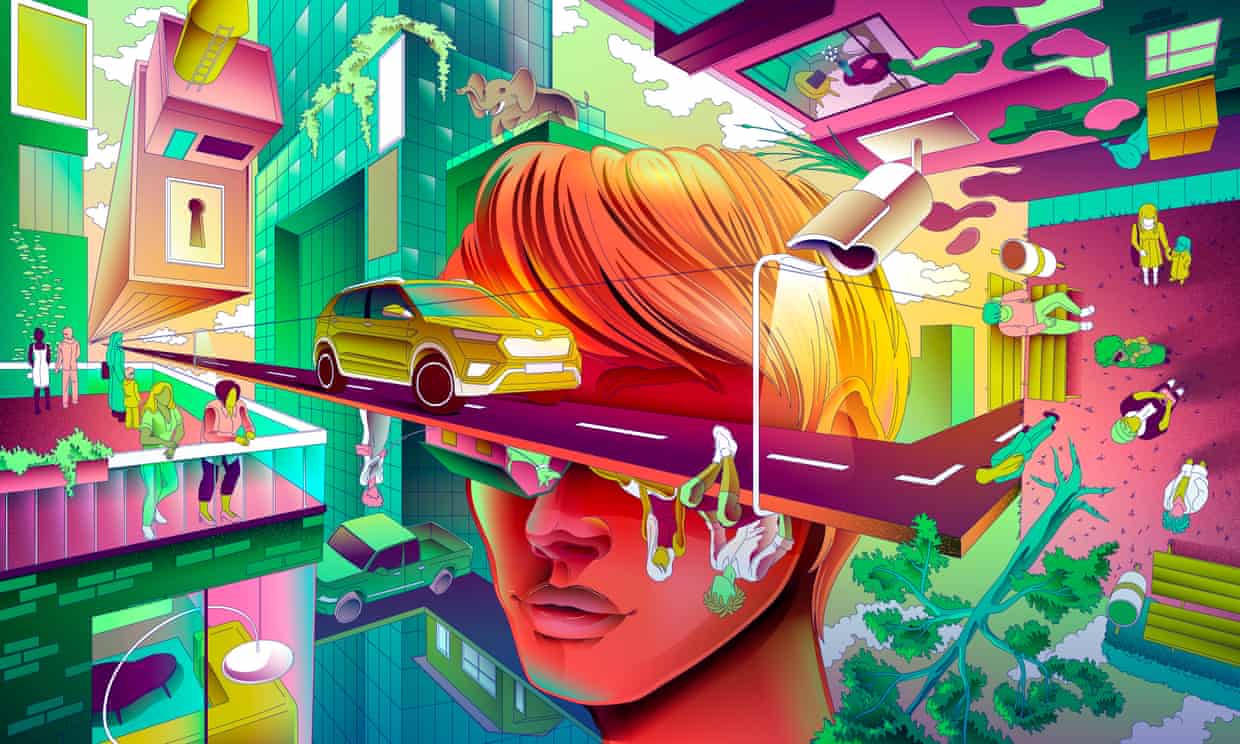
‘‘In an atomized society, others become phantoms all too easily, grist for the mill of resentment and mistrust.’
Illustration: Ari Liloan/Via The Guardian
Wisdom and the Good Life
Ancient Words of Wisdom in Times of Profound Polarisation, Change, Uncertainty, and Self-Doubt
THIS IS THE WEB OF LIFE: We’re all in this together
How to Build a Better World and a Rewarding Life by Bridging Ancient Wisdom into our Modern Living
I am yearning to be more excited than worried about the future
What can we learn from our ancient thought-leaders?
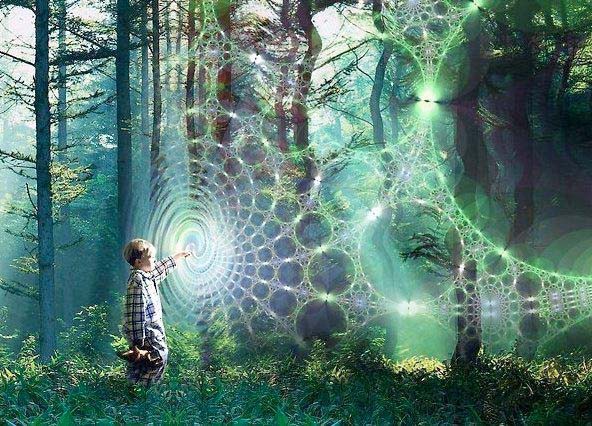
Photo: Pinterest
“Man did not weave the web of life – he is merely a strand in it.
Whatever he does to the web, he does to himself.”
‘Every part of this earth is sacred to my people. Every shining pine needle, every sandy shore, every mist in the dark woods, every meadow, every humming insect. All are holy in the memory and experience of my people.
We know the sap which courses through the trees as we know the blood that courses through our veins. We are part of the earth and it is part of us. The perfumed flowers are our sisters. The bear, the deer, the great eagle, these are our brothers. The rocky crests, the juices in the meadow, the body heat of the pony, and man, all belong to the same family.
The shining water that moves in the streams and rivers is not just water, but the blood of our ancestors. If we sell our land, you must remember that it is sacred. Each ghostly reflection in the clear waters of the lakes tells of events and memories in the life of my people. The water's murmur is the voice of my father's father. The rivers are our brothers. They quench our thirst. They carry our canoes and feed our children. So you must give to the rivers the kindness you would give any brother.
If we sell you our land, remember that the air is precious to us, that the air shares its spirit with all the life it supports. The wind that gave our grandfather his first breath also receives his last sigh. The wind also gives our children the spirit of life. So if we sell you our land, you must keep it apart and sacred, as a place where man can go to taste the wind that is sweetened by the meadow flowers.
Will you teach your children what we have taught our children? That the earth is our mother? What befalls the earth befalls all the sons of the earth.
This we know the earth does not belong to man, man belongs to the earth. All things are connected like the blood that unites us all. Man did not weave the web of life, he is merely a strand in it. Whatever he does to the web, he does to himself.’- Chief Seattle(c. 1786 – June 7, 1866), a proponent of ecological responsibility and respect of Native Americans' land rights
A timely reflection on one of the most ancient subjects in philosophy - Wisdom.
'Happy are those who find wisdom, and those who get understanding, for her income is better than silver, and her revenue better than gold. She is more precious than jewels, and nothing you desire can compare with her.’- 3: 13 -15
‘Know well what leads you forward and what holds you back, and choose the path that leads to wisdom.’- Buddha
‘Knowledge without wisdom is like water in the sand.’- African Proverb
Look all around you. What do you see? Conflicts, wars, hunger, poverty, inequality in the age of supposedly plenty and abundance. Racism, xenophobia, intolerance, and pseudo-nationalism are on the rise. Mother Earth is burning and drowning both at the same time! We have forgotten the art, the beauty and the healing powers of being custodians and have become monster exploiters.
Moreover, brand trust is disappearing fast as ‘We no longer enjoy high levels of confidence in fellow citizens, much less social institutions, and are increasingly skeptical of those holding positions of authority.’ In short, we are no longer builders, but have become plunderers. There is a continuing and deepening pandemic of loneliness, anxiety, depression and self-harm, to name but a few of our ‘modern’ life challenges we are all facing on a daily basis.
Having looked at these and other challenges very carefully for many years now, to my mind, it’s safe to say that the world has lost its way. Our lives, our world, our Mother Nature, we all need to be healed. We’re at a turning point in our history and humanity. A point in which we need to come together and unite to create a harmonious and balanced Earth and way of life. We must all acknowledge that we are all in it together in the web we call life.
All in all, all the prophets, sages, philosophers of love, the caretakers of the Earth, the storytellers, and the keepers of ancient wisdom, have all reminded us that to be mindful and connected, we must go beyond being ‘present in the moment’. We must have a deep awareness and understanding of the consequences of our actions not only in the present moment, but also in the future.
The time is now to seek change today to usher in a better tomorrow, imagining a better world, a world of beauty and love, guided by wisdom.
There is an old saying, an ancient wisdom, which goes something like this: "As it is above, so it is below." Essentially, this statement points to a universal idiom that most of us brought up under the inhumane ideology of neliberalism may not be comfortable with: We are all in it together. What happens to me, happens to you. What happens to our families, is happening at a larger scale in our community. When one suffers, we all suffer, for all systems are woven together.
This is how Sa’di, the Persian sage and poet explained it all those centuries ago:
Human beings are like parts of a body,
Created from the same essence.
When one part is hurt and in pain,
the others cannot remain in peace and be quiet.
If the misery of others leaves you indifferent,
and with no feelings of sorrow,
You cannot be called a human being.
Another of his poems is inscribed at the entrance of the Secretariat of the United Nations in New York:
The children of Adam
are limbs of one another;
in terms of creation
they’re of the self-same Essence
Healing the Heart and the Soul of our Troubled World: Harnessing the Spirit of UBUNTU
The Path to Hope: Envisioning a future where we attain infinite abundance, beauty, and wisdom by working together.
“You can’t be human all by yourself.”- Archbishop Emeritus of Cape Town, Desmond Tutu
“I am what I am because of who we all are.”- Liberian peace activist, Leymah Gbowee
We belong to each other and need one another to thrive on this planet, our collective home. The possibilities, the opportunities, are endless when we allow ourselves to share our unique talents for the greater good.
Finding the ‘Common Good’: Caring for each other and working together
How may this ancient African wisdom help us change the way we think about our personal, societal and global crisis?
Ubuntu is the path of global transformation in harmony with the web of life
UBUNTU: "I am because we are"
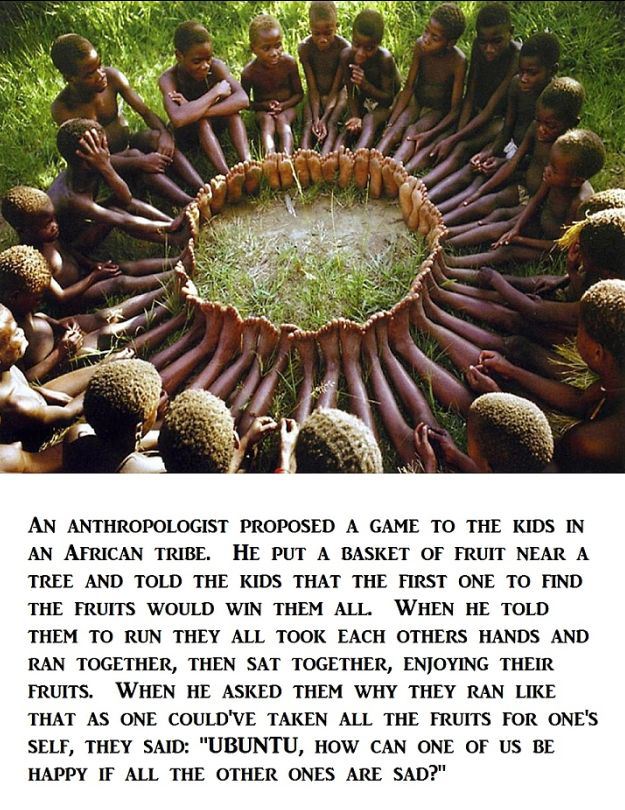
Photo: Photo: globalelite.tv
Ubuntu – the African philosophy best understood through the proverb found in Bantu languages across the continent, “umuntu ngumuntu ngabanye bantu” (a person is a person through other people)
Through its emphasis on humanity, compassion, altruism, cohesion, and social responsibility, Ubuntu (“I am because we are”) has the potential to empower and enable us to focus on how to build a better life and how to reimagine and reconstruct a better world.
Ubuntu speaks particularly about the fact that you can't exist as a human being in isolation. It speaks about our interconnectedness and generosity. You can't be human all by yourself and when you are connected, what you do affects the whole World.
In short, if we want to realise anything good in life, including any goals we may set for ourselves, we must begin, first and foremost, by focusing on some fundamental and enduring questions of human meaning and value. Questions such as:
- What does it mean to be human?
- What does it mean to live a life of meaning and purpose?
- What does it mean to understand and appreciate the natural world?
- What does it mean to forge a more just society for the common good?
By their very nature, these questions involve thought and discussion around spirituality, ethics, morals and values, in contrast to today’s dominant neoliberal model which is all about money and more money and the exploitation of the vulnerable and mother nature for personal gains.
This means that our lives are connected not only to knowledge, power and money, but also to our humanity, love and wisdom. Unless the questions we ask encompass the full spectrum of these emotions and experiences, we are unlikely to find the answers we are looking for, or to understand them in any depth, let alone solving problems and attaining goals.
Wisdom is the torch that shines light on the plague of darkness
A pick from our GCGI archive: Connecting with the voices of Wisdom
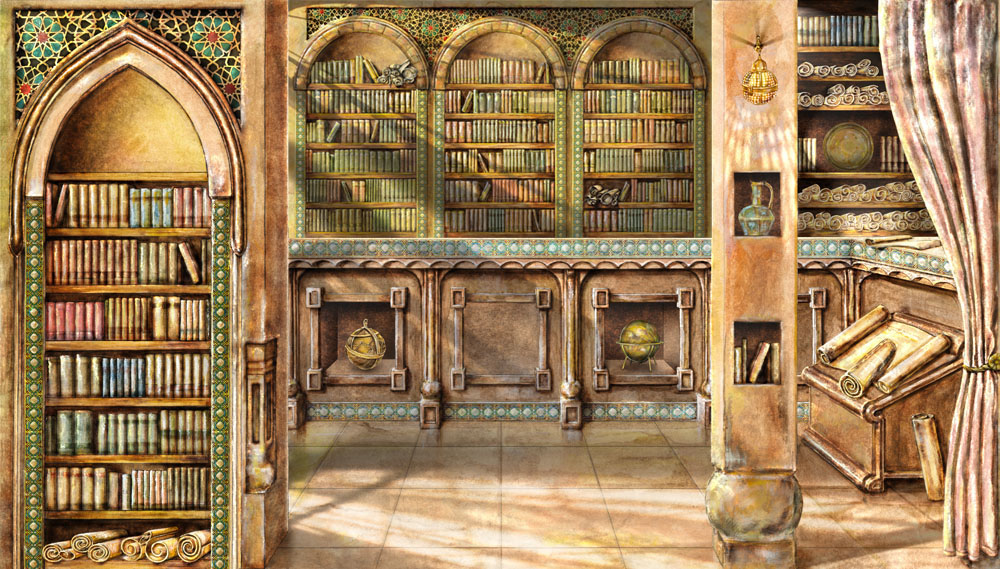
The ancient library of the House of Wisdom, Baghdad.-Photo: 1001 Inventions
N.B. Following the African wisdom of Ubuntu – meaning “A universal bond of sharing that connects all humanity” – we are proud that the high-level goal of what we do and what we focus on at the GCGI is to make the principle of the interconnectedness of the world’s components inherent to people’s economic, financial, and personal behavior.
To my mind, western ideology of individualism and selfishness, as for example, highlighted and promoted by individuals such as Ayn Rand, which is indeed the cruel heart of destructive neoliberalism, I feel, is one of the root causes of the deepening crisis that we are facing. Crony, neoliberal capitalism, which has led to huge accumulation of wealth by a few at the expense of the many, and rampant destruction of nature emanates from looking at life as if nothing matters but ‘ME’!
This rejection of no 'other' is not Ubuntu. That is why, for many years now, I have been saying that the philosophy of indigenous people, of which Ubuntu belongs, is the path to build a better world.
Rand’s Ugly and Values-less Philosophy of Selfishness
The Spirit of Ubuntu and the Common Good
Ubuntu Education: Nelson Mandela’s Lasting Legacy
The Wisdom of "ubuntu": Giving and Sharing for the Common Good
The heart and the soul of education is wisdom
‘Saving economics from the economists’: My dialogue with a young economist
‘Fix a broken economic system: It’s time to rethink that for the good of society’
The Antidote to inhumanity is to know what it means to be human: Ayn Rand Vs David Sloan Wilson
The Destruction of our World and the lies of Milton Friedman
This is how Silicon Valley may become a force for good: Dump Ayn Rand and embrace Henry George
The Age Of Perpetual Crisis: What are we to do in a world seemingly spinning out of our control?
Celebrating the Centenary of the Man for the Common Good
Kindness to Heal the World- Kindness to Make the World Great Again
Wouldn’t the world be a better place with a bit more kindness? Harnessing the Economics of Kindness
The Pandemic and the Global Moral and Spiritual Bankruptcy
Forgiveness and Reconciliation in Pursuit of the Global Common Good
Spirituality and Environmentalism: Healing Ourselves and our Troubled World
In the World of Spiritual Hunger We Need Philosophy
Theology, Philosophy, Ethics, Spirituality and Economics: A Call to Dialogue
Composing a New Life: In Praise of Wisdom
Wisdom and the Well-Rounded Life: What Is a University?
Unity as the Key to Global Prosperity and Peace
‘I Have a Dream’: Yearning for Dr. King’s Interconnected World
Land As Our Teacher: Rhythms of Nature Ushering in a Better World
+Anand Pandian, 'Look around you. The way we live explains why we are increasingly polarized'
The Spirit of Ubuntu and the Common Good
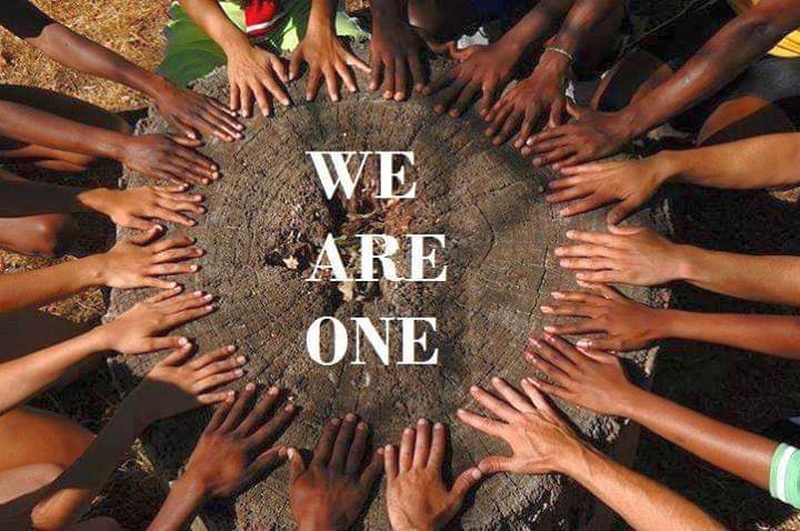
Photo:Facebook
Lest we forget, the future is full of risk and perils for our planet and all peoples. If we are to survive we must surely build cultures of peace, justice, kindness, and trust, and we must walk together to face the future. The journey, for sure, will be much more secure and fruitful if we begin to walk the walk together for the common good, guided by the spirit of Ubuntu.
For me, the key to achieve what was noted above, is Education, not any education, but Ubuntu Education.
My Ubuntu Education
Ubuntu Economics: Economics for Meaning, Social Justice and the Common Good
Ronald Coase, professor of economics at the University of Chicago Law School and winner of the Nobel Prize in Economics, shortly before his death on September 2, 2013, published an article in the Harvard Business Review, ‘Saving economics from the economists’ (Coase & Wang, 2012). He argued that ‘the degree to which economics is isolated from the ordinary business of life is extraordinary and unfortunate’. ‘In the 20th century, economics identified itself as a theoretical approach of economization and gave up the real-world economy as its subject matter. It thus is not a tool the public turns to for enlightenment about how the economy operates…. It is time to re-engage with the economy. Market economies springing up in China, India, Africa, and elsewhere herald unprecedented opportunities for economists to study how the market economy gains its resilience in societies with cultural, institutional, and organizational diversity. But knowledge will come only if economics can be reoriented to the study of man as he is and the economic system as it actually exists’.
There are many heterodox economists who reject the dominant model of rational choice in ‘free’ markets, and want to reconnect the study of the economy to the real world; to make its findings more accessible to the public; and to place economic analysis within a framework that embraces humanity as a whole, the world we live in.
This course, “Ubuntu Economics: Economics for Meaning, Social Justice and the Common Good” with its ‘human economy’ approach shares all these priorities. Our focus draws inspiration from and seeks to contribute to the tradition of economic thought, but, more explicitly than these currents within economics, we are open to other traditions, notably philosophy, anthropology, sociology, history and development studies.
Reverting to Ubuntu Economics:
As it has been said, “Africa, the birthplace of the first human, may just hold the key to the survival of humanity. How fitting and appropriate that the country where homo erectus was first identified is also the birthplace of the philosophy that points the way toward a sustainable future for us, its offspring.
No, I'm not talking about a new technology that will solve our dependence on non-renewable energy resources or that will stop climate change. Not directly at least. But I am talking about a way of seeing the world and all its inhabitants that, if adopted by a critical mass of human beings, would have a major impact in our ability to work together and ultimately shift the context of what it means to be a human being living on Planet Earth in the 21st century.
The philosophy is simple enough. It does however require a massive shift in how we think about ourselves, how we see each other, and how we view every other living thing on the planet.
I'm talking about the philosophy called "Ubuntu," which translated means "I am what I am, because of who we all are." The word "ubuntu" has its origins in the Bantu languages of southern Africa.”
In all, when we speak about the Ubuntu Spirit, we’re referring to the spirit of oneness, unity, love, peace and compassion, which expresses itself in a desire to help others and includes everyone. As Nelson Mandela explains, “The spirit of ubuntu – that profound African sense that we are human only through the humanity of other human beings – is not a parochial phenomenon, but has added globally to our common search for a better world.”
Moreover, as it has been observed by many, people are not individuals, living in a state of independence. They are part of a community, living in relationships and interdependence. This is in stark contrast to neo-classicals who emphasise the individual and its egoism as the engine of economics and business.
Course outline:
What is Ubuntu?
Ubuntu: The philosophical, theological, and spiritual underpinnings
Ubuntu: The economic values. How do they differ from the neo-classical values?
Ubuntu in Africa
What can the West learn from African spirituality and ubuntu?
Ubuntu’s role in community cohesion and transformation
Ubuntu’s role in health-care provision and allocation of resources
Ubuntu business: What is it?
Examples of ubuntu transforming the CEOs and their businesses
The spirit of ubuntu and philanthropy
Ubuntu and the Bottom Line
Continue to read: Ubuntu Education: Nelson Mandela’s Lasting Legacy
A Must-read Book
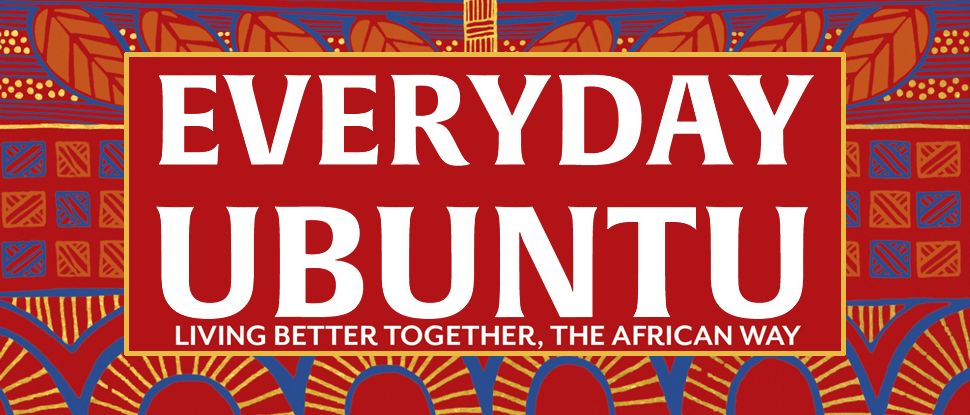
'This book will open your eyes, mind and heart to a way of being in the world that will make our world
a better and more caring one.' ARCHBISHOP DESMOND TUTU, author of The Book of Joy
‘Ubuntu is an ancient Southern African philosophy about how to live life well, together. It is a belief in a universal human bond, which says: I am only because you are.
It means that if you can see everyone as fully human, connected to you by their humanity, you will never be able to treat others as disposable or without worth. By embracing the philosophy of ubuntu it's possible to overcome division and be stronger together in a world where the wise build bridges and the foolish build walls.
These 14 beautifully illustrated lessons from the Rainbow Nation are an essential toolkit to helping us all to live better, together. In stories, practical lessons and applications that recognise our common humanity, our connectedness and interdependence, Everyday Ubuntu helps us to make sense of the world and our place in it.
Exploring ideas of kindness and forgiveness, tolerance and the power of listening, this definitive guide offers practical tips on how we can all benefit from embracing others and living a more fulfilling life as part of the large family to which we all belong.’
Purchase this book HERE
GCGI is our journey of hope and the sweet fruit of a labour of love. It is free to access, and it is ad-free too. We spend hundreds of hours, volunteering our labour and time, spreading the word about what is good and what matters most. If you think that's a worthy mission, as we do—one with powerful leverage to make the world a better place—then, please consider offering your moral and spiritual support by joining our circle of friends, spreading the word about the GCGI and forwarding the website to all those who maybe interested.
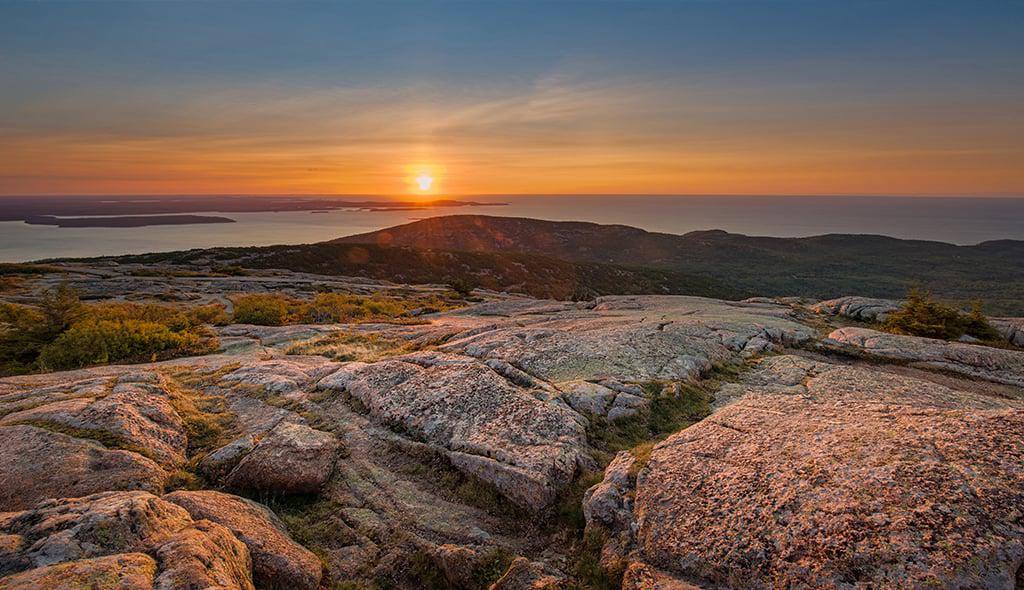
Photo: SHUTTERSTOCK / MIKE VER SPRILL
